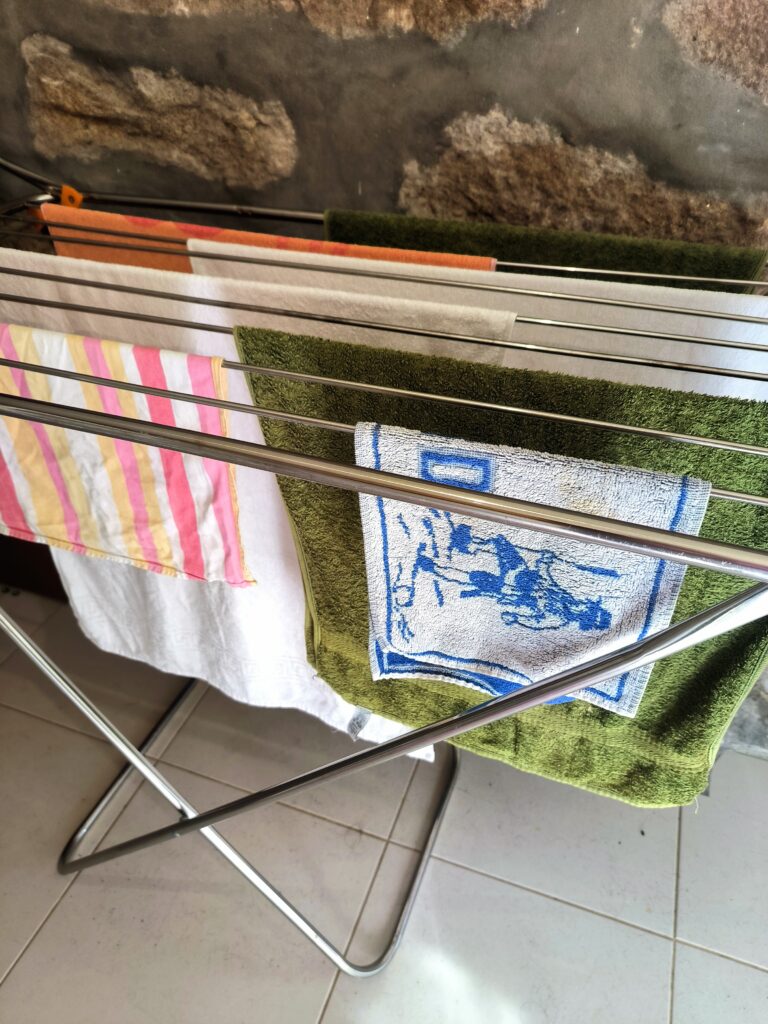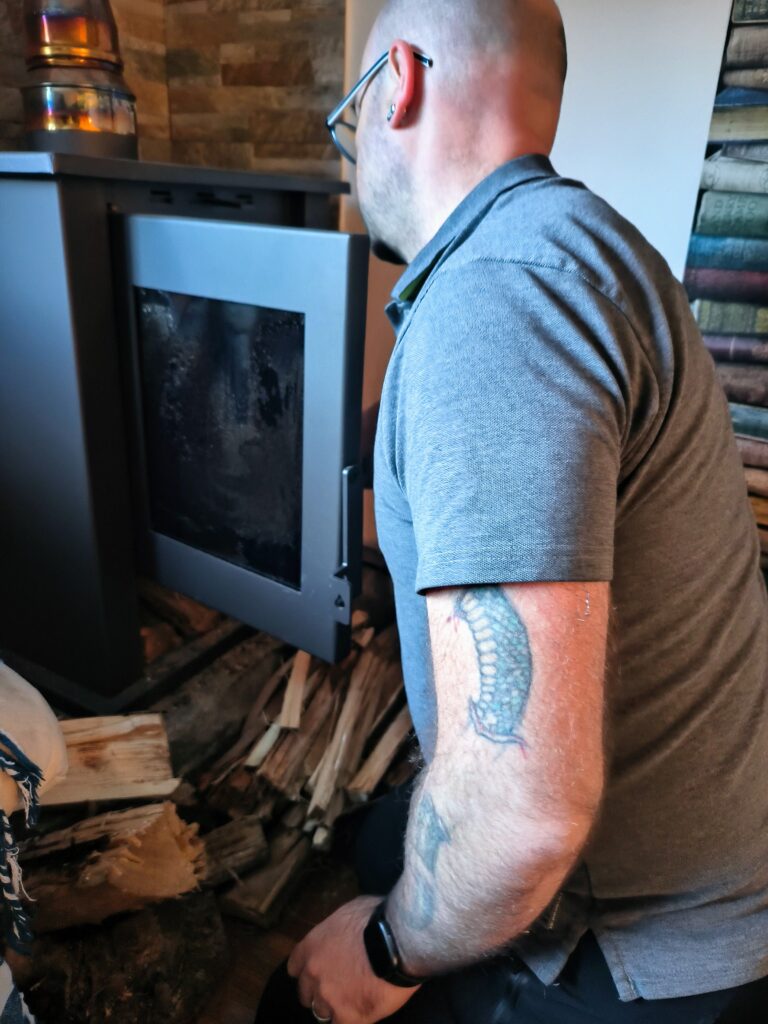Here we are, expats again, having recently relocated from Finland to Portugal. For both hubby and me, this is not our first expat experience. Hubby has previously spent 3 years as an assigned expat in Turkey, South Africa, and the Dominican Republic. I spent 10 years as a self-initiated expat in Sweden and Ireland. (This was before we knew each other; otherwise it would’ve been one hell of a long-distance relationship.) Living in another country is, therefore, something we’re both familiar with. This time, though, our circumstances are notably different (aka, we have each other, kids, and a puppy). We also made this move, yes, for career reasons, but the biggest driver was probably our desire to explore a different way of living. Back in Finland, we seemed to always be rushing off our feet, never having enough time for each other or the things we enjoy doing. We wanted simpler, more peaceful, and less stressful. So what has changed since we came here?
From -30 degrees to 100% humidity
I’m going to take the obvious one first: the weather. We left Finland at the end of December with record colds expected and got updates from friends and family complaining of temperatures as extreme as -39 degrees. By coming to Portugal, we got, instead, 100% humidity. What that feels like (in case you don’t know – and we didn’t!) is your clothes feel clammy when you put them on in the morning; your towel never has enough time to dry in between your showers; and your sheets are cold and moist when you go to bed in the evening.

From mod cons to dishes and wood burners
The houses in Finland are modern, with most coming equipped with all the modern conveniences; heck, we even had a wine fridge and heated towel racks in our place. Life is easy: you let the dishwasher take care of the dirty dishes, you can expect the laundry to be dry the next day and not in three days smelling like someone’s thrown up on it, and even with the above-mentioned temperatures, you know central heating will magically make sure every room is at the right temperature.

Here in Portugal, we rent an old farm house, which does come with some modern amenities, like a washer and air heat pumps, which I’m sure we’ll enjoy tremendously once the weather turns hot. There are two notable omissions that we feel every day, however: a dishwasher and central heating. Now, we cook a lot, and sometimes quite elaborate dishes (at least if I’m in charge of the menu), and, surprisingly enough, no one is itching to get their hands on the dirty dishes. But even more than the dishwasher, I miss the convenience of central heating. While it’s often quite warm outside, especially in the afternoon (15 degrees is quite common), this is an old house with thick stone walls, which are good at holding on to the chillier night temperatures. So, we definitely still need to heat indoors, and we rely on stoves for that: one gas one in the kitchen and one wood-burning one in the living room. While they are terribly romantic sources of heat, there are a couple of issues. To get the wood burner going, you need dry wood – duh. But with the humidity, there’s zero chance of that. Therefore, if we (and by “we” I mean hubby) do manage to get the fire started, there’s usually so much smoke in the first hour or so that we have to open a couple of windows to let fresh air in – otherwise, it’s difficult to breathe or, you know, see anything from the eyes burning. End result: the room is even colder than before we attempted to start the fire. Other issues include the house being freezing in the morning (since we’ve not yet set up firewatch duties so that someone is always up and making sure the fire doesn’t go out); the likelihood of overheating if we’ve get a nice blaze going and then the sun starts to shine in full force; our clothes smelling of smoke; and the burners doing nothing to the space downstairs where my office is and where I, therefore, often sit in my quilted jacket with two pairs of woolly socks and slippers on my feet.
That sounds like a lot of work, and I suppose it is. But it is a simpler, more back-to-the-basics sort of existence, which feels oddly satisfying. And I do love the slightly caveman-esque look of hubby wielding the axe when chopping firewood.
From no yard to 17 000 sqm of garden

Back in Finland, we lived in an apartment close to the town center. We had no yard and took the boys (including the furry black one) to the park when we wanted them to play outside. Here, our rental is surrounded by an enormous garden which we’re allowed to use as if it were our own. We pick oranges and mandarins from the trees daily; the boys have started building an elaborate fort out of clay and sticks; a lovely hour can be spent examining which new flowers have bloomed. And the best part? The landlord employs a gardener, so we don’t have to worry about the weeding and whatnot.
From scattering around the town to always being at home
Driving the kids to school and daycare in the morning while hubby and I disperse to work before meeting up again, exhausted and stressed out, for dinner and homework. Sounds familiar to a lot of people, I’m sure. While I wasn’t necessarily hankering to spend all my hours with the kids – I love my job and having my own interests – we noticed that one of our most common replies to kids’ requests was “we don’t have time”. And it seemed that would only change once the kids grow up and need us less which is, of course, when they stop asking us to do things with them. Cue moving to a farm in the middle of Portuguese nowhere which, apart from my regular trips to Porto, we have no reason to leave on a daily basis. Hubby works fully remotely, and we homeschool the kids. From the moment the kids wake up (usually approximately 6.23 a.m.) to when we go to bed, we are always in the same place. Honestly, while I was willing to give it a try, I was afraid it’d get on my nerves. But having my office space separated from the rest of the living quarters, my trips to meet with new colleagues to discuss nerdy research stuff, a competent au pair who keeps the boys entertained during the day, and of course the garden all contribute to a better work-life balance where I have enough time and space for my own interests, but I’m not always too exhausted to play board games, teach crocheting, or throw a ball for Bruno.

